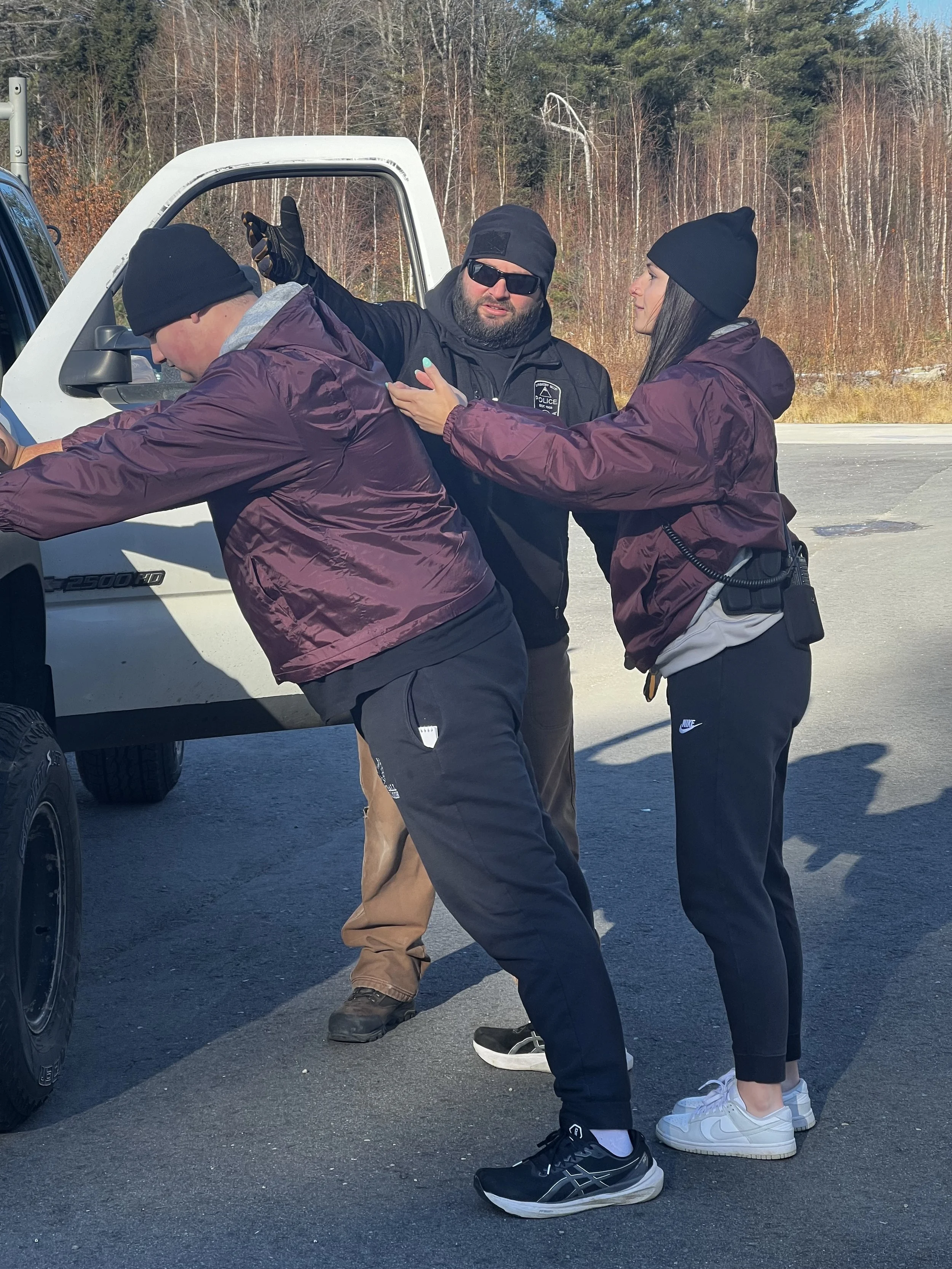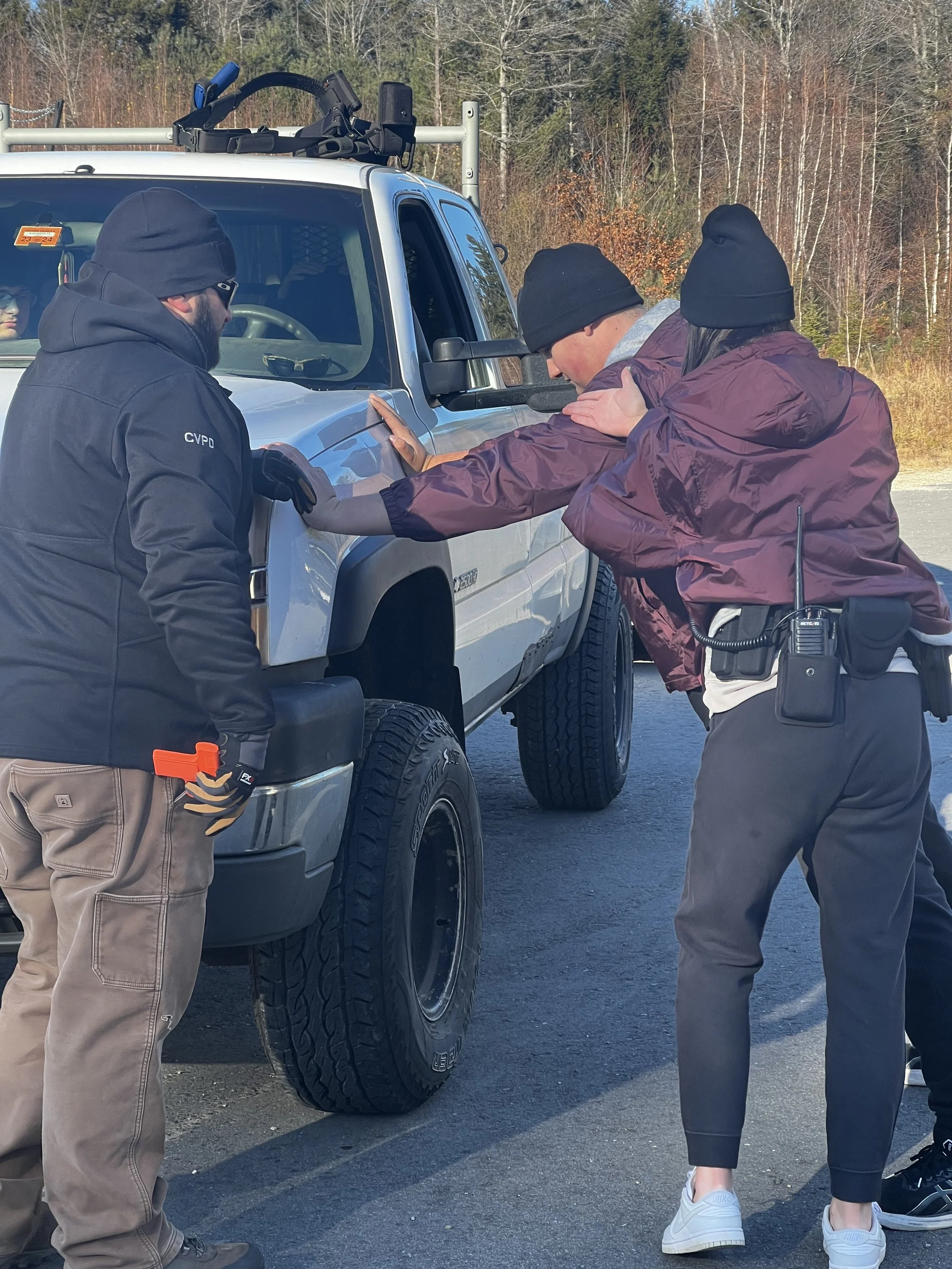Law Enforcement
This dynamic program is designed to prepare students for a challenging and rewarding career in law enforcement. The course will provide students with a comprehensive understanding of criminal justice, investigative techniques, and the skills required to serve and protect communities.
Whether students aspire to become police officers, detectives, or pursue further education in criminal justice, this course provides a solid foundation in law enforcement and criminal justice practices. Students will gain the skills, knowledge, and ethical framework necessary to uphold justice and contribute to the safety and well-being of their communities.
Prepare for a dynamic career in law enforcement blending hands-on training, cutting-edge technology, and theoretical knowledge to equip you with the skills needed to excel in the evolving field of criminal justice.
Program Objectives
-
Explore the history, structure, and functions of law enforcement agencies.
Understand the role of law enforcement in maintaining public safety and upholding the rule of law.
-
Gain insights into the components of the criminal justice system, including law enforcement, courts, and corrections.
Explore the principles of criminal law, criminal procedure, and the rights of the accused.
-
Learn the basics of police patrol operations, including community policing, crime prevention, and routine patrol duties.
Understand the importance of effective communication and de-escalation techniques.
-
Develop skills in criminal investigations, including crime scene processing, evidence collection, and forensic techniques.
Understand the fundamentals of conducting interviews and interrogations.
-
Explore legal and ethical considerations in law enforcement, including the use of force, civil rights, and ethical decision-making.
Understand the principles of accountability and transparency in policing.
-
Learn to respond to emergencies and crises, including natural disasters, accidents, and incidents requiring tactical intervention.
Develop crisis management skills and coordination with other first responders.
-
Understand the principles of community policing and building positive relationships with the community.
Engage in community outreach programs and initiatives to foster trust and collaboration.
-
Explore the use of technology in law enforcement, including surveillance systems, data analysis, and forensic technology.
Develop skills in using technology to enhance investigative capabilities.
-
Explore specialized units within law enforcement, such as SWAT, K-9, cybercrime, and narcotics.
Understand diverse career pathways, including detective, crime scene investigator, and leadership roles.
-
Focus on physical fitness and wellness to meet the demands of law enforcement.
Engage in regular fitness training to enhance strength, endurance, and overall health.
-
Understand the requirements for law enforcement certification in the state or region.
Prepare for relevant certifications, such as PHASE 1 & 2 of MCJA
-
Connect with professionals in the law enforcement field through guest speakers, industry visits, and virtual interactions.
Gain insights into career opportunities, industry trends, and potential internship or apprenticeship programs.






